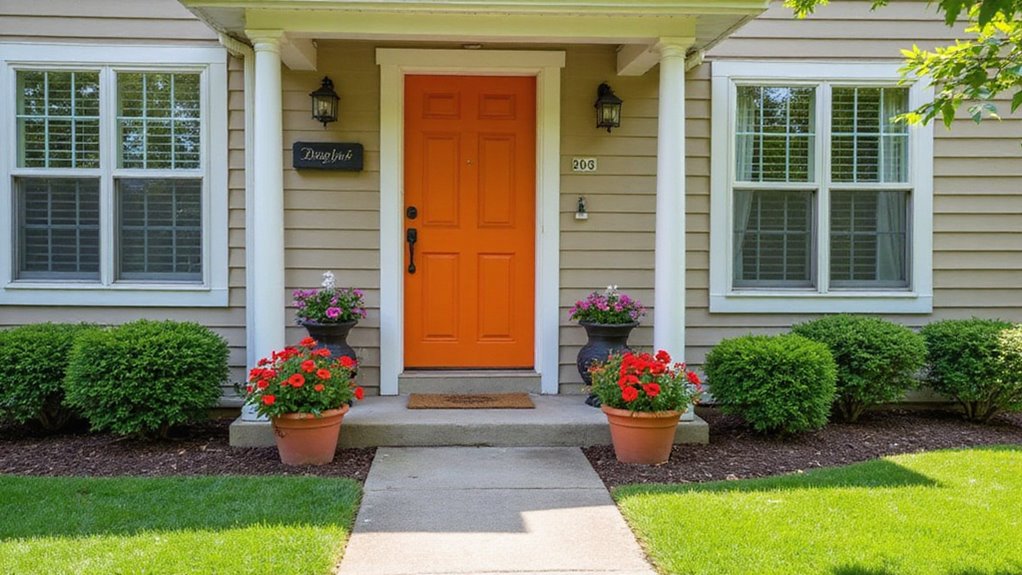A sudden job transfer can turn your world upside down, especially if you need to sell your house quickly. The pressure to move fast can leave you feeling stressed and unsure where to start. You may worry about getting a good price or making the sale on time.
This urgency can cause mistakes that cost money and delay your move. Many people panic and accept low offers or skip important steps. The risk of losing both time and money is high if you do not plan well.
To sell your house fast due to a job transfer, you need a clear plan and smart decisions. This means pricing right, staging well, and choosing the best marketing strategies. Acting quickly and wisely can help you get the results you need. This blog will guide you step by step to help you sell your house quickly and confidently.
Key Takeaways
- Work with a reputable cash buyer or investor to sell your house quickly and avoid lengthy closing processes.
- Price the home competitively based on recent local sales to attract serious buyers and generate fast offers.
- Declutter, clean, and stage the home to make it appealing and move-in ready for potential buyers.
- Use a real estate agent experienced in fast sales, or list on MLS for maximum exposure and buyer reach.
- Prepare all documents in advance and address any inspection or appraisal issues early to prevent closing delays.
Assessing Your Timeline and Setting Priorities
Before selling your home, decide how quickly you want to move. Set your main goals, such as selling fast or getting the highest price. Knowing these will help guide your decisions.
If you need to move for a job, set your move-out date first. Work backwards to allow time for closing and any unexpected delays. This will help you avoid last-minute problems. Many sellers who need a quick solution turn to no-obligation cash offers for a fast and straightforward process.
Staged homes sell 88% faster and for up to 20% more, according to the National Association of Realtors. If you want a better sale, consider staging your home. Simple changes like new landscaping or a painted door can attract more buyers.
If your main goal is a quick sale, focus on things that make your home stand out right away. If you want the most money, invest in improvements that add value. Matching your timeline and goals will make the selling process smoother.
If selling quickly is your top priority, consider selling to real estate investors who can provide a fast, hassle-free process without the need for repairs or costly fees.
Researching the Local Real Estate Market
Start by analyzing recent comparable sales in your neighborhood to set a competitive price. Track local market trends and inventory changes to understand how quickly homes are selling. Assess current buyer demand so you can position your property for a faster sale.
If you want to avoid lengthy listings and open houses, consider working with a family-owned local business that specializes in buying houses quickly for cash. Choosing a company with no fees or commissions can help you maximize your profits and simplify the selling process.
Analyzing Comparable Sales Data
Analyzing comparable sales data helps you set the right price for your home. Comps show what similar homes in your area have sold for. If you use this data, you can avoid pricing mistakes.
You should look at properties sold in the past three to six months. Focus on homes with similar size, condition, and upgrades. If your home has special features, adjust your price based on those.
Review how long each comp stayed on the market. Shorter times may show a good asking price. You can ask your agent to help explain what the comps mean for your sale.
Identifying Market Trends
To identify market trends, check recent data for your area. Market trends help you understand what buyers want and how to price your home. Use facts to make decisions, not guesses.
Review reports for your zip code to find out what features are popular. If homes with luxury upgrades sell quickly, consider adding similar features. If certain neighborhoods have higher demand, note those factors.
The table below shows important market factors and why they matter. For example, luxury upgrades attract buyers and raise value. Neighborhood trends and price changes also affect your asking price.
Compare homes with and without upgrades to see which perform better. Follow weekly updates to spot changes in the market. Good research helps you sell faster and set a fair price.
Assessing Buyer Demand
To assess buyer demand, look at what buyers want and how many homes are for sale. This helps you understand if your home will sell quickly. If you know the demand, you can make better decisions.
Check recent sales for homes like yours in your area. Track how many days these homes stay on the market. Fewer days usually mean higher demand.
Compare the number of homes for sale to the number sold. If there are many homes for sale, you may face more competition. Fewer homes mean buyers have fewer choices.
Review open house attendance and online views. High interest often means strong demand. Ask local agents about buyer activity if you need more details. If you use this data, you can set a fair price and market your home well. Acting on facts helps you sell your home faster.
Pricing Your Home Competitively
Competitive pricing helps attract serious buyers and makes your home stand out. Sellers with limited time, like job transfers, need this strategy. Check recent sales and compare listing prices to final sale prices in your area.
Homes priced within 2-3% of market value usually sell much faster. Emotional attachment should not set your price; buyers look at data and compare homes online. If you price your home too high, it may not sell quickly. For sellers who want to avoid real estate commissions and close quickly, all-cash buyers can be a valuable option.
Good staging and open houses can increase your home’s appeal. These steps make buyers see more value and may create urgency. Adjust your price quickly if the market or feedback suggests it.
If you’re considering selling your house in its current state, understanding as-is home sale can help you set realistic expectations for pricing and buyer negotiations.
Enhancing Curb Appeal Quickly

Buyers notice curb appeal right away. Quick improvements can help your home sell faster and for a higher price. Simple landscaping and updates make a big difference.
You can trim bushes, mow the lawn, and add fresh mulch for a neat yard. If you need fast results, paint or clean your front door. Placing colorful potted plants by the entrance can make it more inviting. Homeowners selling due to a job transfer may also want to understand the capital gains tax exclusion that could apply if they’ve lived in the home for at least two years within the last five years.
New house numbers and a modern mailbox can update your home’s look. Power washing walkways, siding, and the driveway gives everything a clean finish. If you are short on time, focus on these quick changes.
For even faster results, consider working directly with a local family-owned home buyer who can purchase your house as-is, saving you time and effort on curb appeal projects.
Staging Your Home for Maximum Impact
To attract serious buyers quickly, start by decluttering and depersonalizing every space—studies show staged homes sell 73% faster. Remove personal items and excess furniture so buyers can envision themselves living there. Focus on highlighting your home’s standout features, like natural light or updated appliances, to make a strong impression.
If you want a truly stress-free selling experience, consider the fast & effortless process offered by local cash buyers who can help you avoid the hassle of listing and showings. Don’t forget to address any moisture and mold issues, as resolving these problems before listing can make your home more marketable and help avoid legal troubles down the line.
Declutter and Depersonalize Spaces
Decluttering and depersonalizing spaces helps buyers imagine living in your home. These steps make rooms feel bigger and more inviting. A clean and neutral space is easier for buyers to picture as their own.
You should remove family photos, awards, and personal items if you want buyers to see the home’s features. Clear off kitchen counters, bathroom sinks, and tables. Store seasonal decorations and extra furniture out of sight.
Organize closets and storage spaces so they look spacious. If you have children or pets, keep their toys and items tucked away. These changes can help buyers focus on the house, not your personal belongings.
Highlight Key Selling Features
Key selling features help your home stand out to buyers. Highlight these features as soon as buyers enter your home. This can increase your home’s value and attract more interest.
Good home staging makes rooms look bright and spacious. Use neutral colors and arrange furniture to show off space and flow. Clean windows and new lighting can make each room feel welcoming.
Unique features like hardwood floors or energy-saving appliances should be emphasized. If your home has lots of natural light, make sure curtains are open. For open houses, fresh flowers or a set dining table can create a warm feel. If you focus on these selling points, you can attract serious buyers. Your home may sell faster, even in a busy market.
Professional Photography and Virtual Tours

High-quality photos and virtual tours help your home stand out online. These tools attract more buyers to your listing. Professional photos can increase views by up to 61%.
Clear, well-lit images show each room’s best features. Virtual tours allow buyers to explore your property from anywhere. If buyers need to move quickly, virtual tours speed up their decisions. Working with a family-owned local business can ensure your home is presented with personal attention and expertise.
Photos should use natural light for accuracy. Unique upgrades and amenities must be shown. Outdoor spaces and curb appeal should also be highlighted.
A complete virtual walkthrough should cover every part of the property. If your home is near safe neighborhoods or has low property taxes, these details should be shown. Buyers often look for these features when choosing a home.
If you need to sell your house fast in Ballwin, MO, professional photography and virtual tours can help attract serious buyers and streamline the selling process.
Marketing Strategies for a Fast Sale
To sell your house quickly, you need a marketing plan that gets results. Focus on high-impact online listings—homes with professional photos and detailed descriptions sell 32% faster—and use targeted local advertising to reach serious buyers in your area. Make sure to review the original contract terms before listing your property, especially if you are selling a house you are still paying for on a land contract, to avoid any legal complications.
Combine these strategies to maximize visibility and drive immediate interest. If your property has multiple owners, be sure to coordinate your marketing efforts and legal documentation to avoid delays.
High-Impact Online Listings
High-impact online listings help your home stand out in a busy market. Good listings attract attention and turn views into showings. You need a clear plan to succeed online.
Professional photos make your home look its best. Concise descriptions with important keywords help buyers find your listing easily. Highlight special features and recent upgrades for extra appeal.
Neighborhood information gives buyers useful context. If possible, add a 3D virtual tour and a floor plan. These extras can increase interest and set your home apart.
Targeted Local Advertising
Targeted local advertising helps you reach buyers in your area quickly. Local buyers often search close to home, especially if they need to move soon. If you want fast results, focus your marketing nearby.
Local print ads, bulletin boards, and mail flyers work well for this. You can highlight your home’s best features using these methods. If you use high-quality photos, you can attract more attention.
Local real estate agents know the neighborhood and can connect you with serious buyers. You might attend or sponsor community events to boost your home’s visibility. If you need to sell because of a job transfer, local advertising is a smart strategy.
Choosing Between an Agent and FSBO

You need to choose between using a real estate agent or selling your house yourself (FSBO). Agents usually help homes sell faster because they handle marketing and negotiations. If you sell alone, you might save on commission but must do all the work.
An agent can suggest ways to make your house look better to buyers. If you go FSBO, you must organize open houses and showings yourself. Agents can list your house on the MLS, which gives it more visibility.
FSBO sellers are responsible for handling all contracts and legal documents. Agents often get higher sale prices, which can make up for their fees. You should consider your time, skills, and comfort with selling before making a choice. If someone else is on the deed, you will need to get agreement from all owners before listing or selling the property.
Considering Cash Buyers and Investors
Many homeowners choose cash buyers or investors to sell their homes quickly. These buyers can close deals in only a few days. If you need to move for a job, this option saves time.
Cash buyers usually purchase homes “as is.” You do not need to spend money on repairs or staging. This makes the selling process much easier.
According to ATTOM Data Solutions, over 30% of U.S. home sales in 2023 were cash deals. This shows their popularity for fast moves. However, cash offers are often lower than market value.
Some investors may avoid homes in less desirable neighborhoods. You might get fewer offers if your area has a poor reputation. If price matters most, you should consider listing your home on the open market.
A quick sale brings relief and reduces stress. The process involves less paperwork and fewer negotiations. However, you might need to accept a lower selling price.
Negotiating Offers Effectively

Negotiating offers helps you sell your house faster and for more money. Homes with good negotiation can sell for up to 8% more. Strong negotiation skills are key to getting better terms.
Sellers should use home staging and open houses to show the best features. These steps help explain the asking price to buyers. If buyers see value, they may offer more.
You should answer offers quickly to keep buyers interested. If you get an offer, use similar home sales as proof for your counter-offer. If buyers know you are moving for work, they may act faster.
A seller can offer flexible closing dates or small repairs to attract buyers. These small steps can make your home stand out. If you use these tactics, you will likely get better offers and sell sooner.
Navigating Inspections and Appraisals
Inspections and appraisals are important steps when selling your home. A pre-listing inspection can help you find and fix problems early. Homes without major issues usually sell faster.
Addressing inspection and appraisal early can help your home sell faster and avoid surprises during the selling process.
Sellers should fix health, safety, and structural concerns first. If you address these problems, you can avoid delays later. Buyers are more comfortable with well-maintained homes.
For the appraisal, provide records of upgrades and recent sales in your area. Clean and stage your home before the appraiser visits. Well-presented homes often receive higher appraisals.
If the appraisal comes in low, be prepared to respond. You can negotiate or give more information to support your price. Staying available helps keep the sale moving smoothly.
Handling Paperwork and Legal Requirements
Handling paperwork and legal requirements is essential when selling your house. You need the right documents and must follow legal steps. Missing paperwork can delay or stop the sale.
Gather your title deeds early to show you own the property. If you do not have them, ask your lender or local records office. This helps avoid last-minute problems.
You must complete all legal disclosures honestly. If you skip this step, you could face legal trouble later. Check local rules to see what disclosures are needed.
Get a current mortgage payoff statement from your lender. This will show how much you still owe on the house. Buyers will want this information before closing.
Request recent property tax statements and utility bills. If buyers ask for proof of payments, you can provide these quickly. Keeping these ready can speed up the process.
Consult a real estate attorney or agent to review all contracts before you sign. If you have questions, ask them early. Good advice can protect you from mistakes.
Coordinating Your Move and Closing Dates
You’ll sell your house faster and with less stress when you align your sale and move-out dates, especially since 63% of sellers face timing challenges. Plan for temporary housing if needed, and schedule utility transfers in advance to avoid service gaps. Taking these steps streamlines your transition and keeps costs under control.
Aligning Sale and Relocation
Aligning your home sale with your move is important for a smooth transition. Careful planning helps you avoid extra costs and stress. Flexible closing dates can attract more buyers and make the process easier.
Start by scheduling garden maintenance before you list your home. This improves curb appeal and reduces last-minute work. If you want a specific moving date, tell your agent and buyers early.
Neighborhood safety matters, especially during showings. Keep lights on outside to make your home safer and more inviting. Use a shared calendar to track moving, inspection, and closing dates.
Confirm your moving company’s availability as soon as you can. This helps you get your preferred moving date. Planning ahead keeps everything on track.
Managing Temporary Housing Needs
Temporary housing is often needed if your move and closing dates do not match. Many sellers face this situation, so planning ahead is important. If you secure temporary housing, you can keep your home ready for showings and open houses.
There are several common options to consider. Short-term rentals cost $1,500–$3,000 per month and offer high flexibility. Extended-stay hotels cost $2,000–$4,000 and provide moderate flexibility.
Staying with family can be the least expensive, but comfort and flexibility will vary. Airbnb or VRBO rentals range from $2,500–$5,000 and are usually very flexible. Corporate housing costs $3,000–$6,000 and also offers high flexibility.
You should compare costs, flexibility, and your comfort needs. If you need easy access for staging or showings, pick a flexible housing option. This way, you can reduce stress and avoid any delays during your move.
Synchronizing Utility Transfers
A smooth move-out and home closing depend on good utility planning. Utility setup and transfer must be well-coordinated to avoid problems. Planning early prevents interruptions and unexpected charges.
The U.S. Department of Energy suggests arranging utility changes at least two weeks before moving. If you delay, you may face extra fees or service gaps. Buyers expect utilities to stay on until the official closing.
You should contact each utility provider to schedule shutoff or transfer. If the buyer has special requests, confirm their preferred timing. Utilities must remain active until the closing date to avoid inspection issues.
Final meter readings should be documented and shared with all parties. If you share these readings, you can avoid billing mistakes. Set up utilities at your new address before moving to prevent service gaps.
A clear plan and early action make the transfer process much easier. If you stay organized, you can avoid stress and last-minute problems.
Managing Stress During a Rapid Sale
Selling your house quickly can be very stressful. If you want to manage this, use simple steps to stay calm. Good planning helps you stay organized and focused.
Checklists and time blocks can lower anxiety by up to 30%. If you set daily goals and delegate tasks, you may feel less overwhelmed. Friends or professionals can help if you ask for support.
Mindfulness, such as deep breathing, keeps you clear-headed during showings. If you communicate often with your agent and buyers, you can avoid surprises. By managing stress well, you protect your health and may sell faster.
Conclusion
If you need to sell your house quickly due to a job transfer, you should focus on key steps. Pricing your home competitively and improving curb appeal can attract buyers faster. If you stay organized and act quickly, you can simplify the process.
If you want to avoid delays, you might consider selling to a company that buys houses for cash. We buy houses for cash and can often close sales in days, not weeks. This option can reduce stress and help you move on your timeline.
If you are ready to sell your home fast, we at Freedom Path Investors are here to help. We offer fair cash offers and a quick, simple process. Contact us today to get started and make your move easier.







